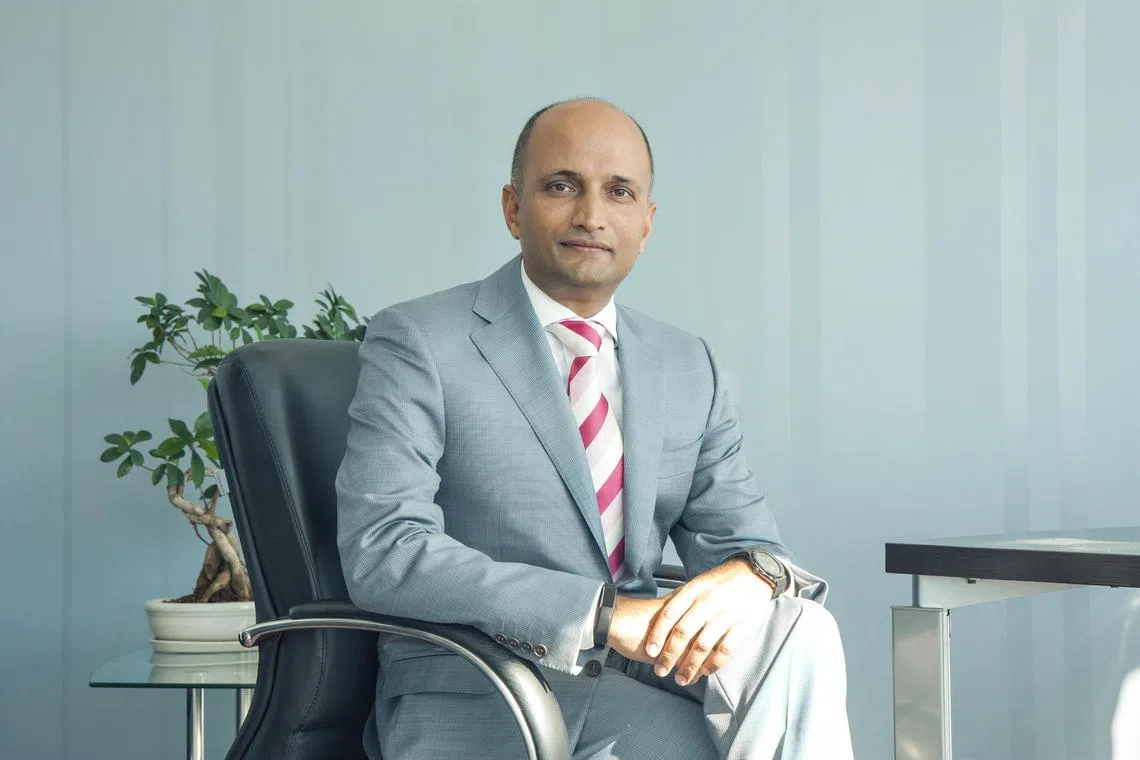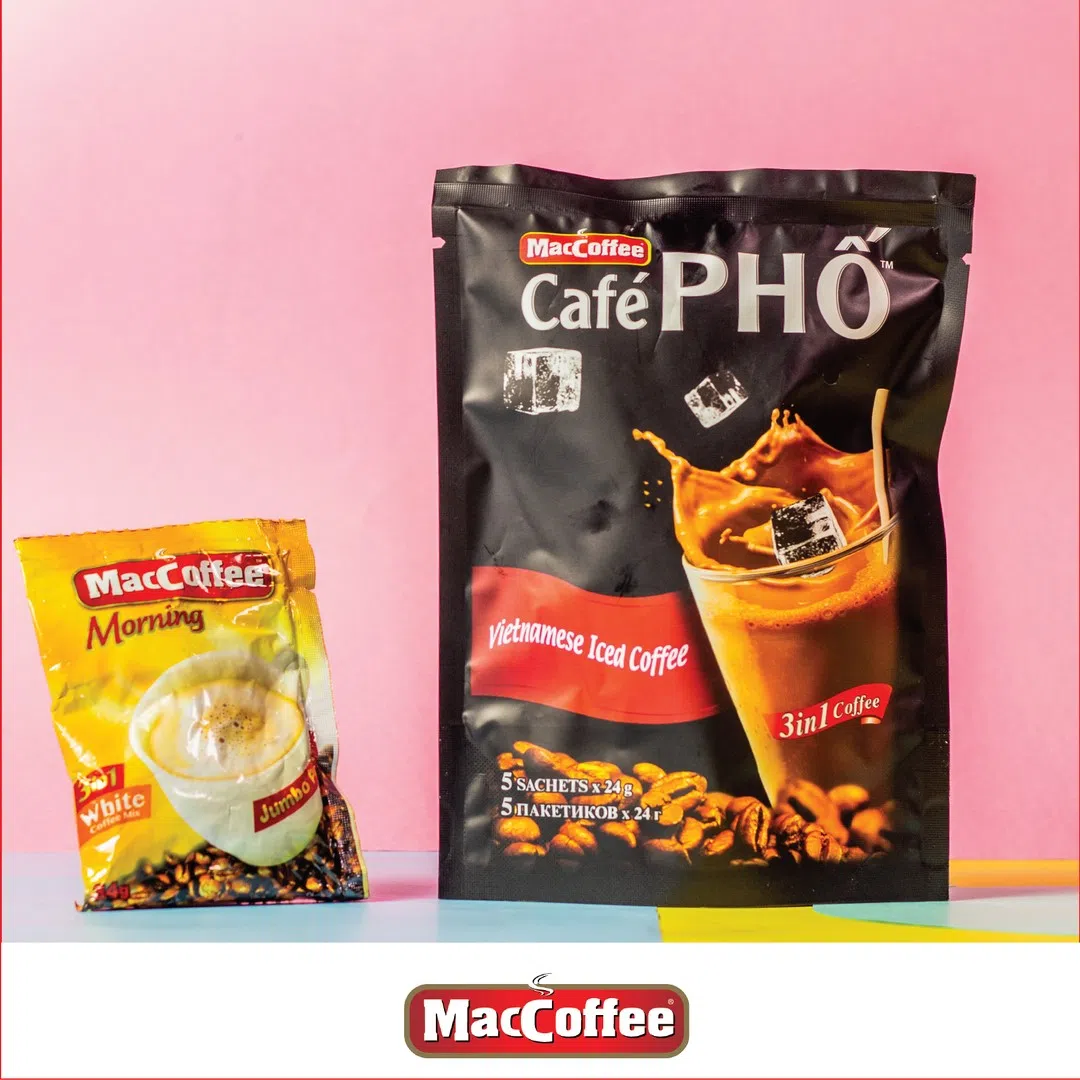Food Empire ramps up share buyback after record sales in Russia and India
Sign up now: Get ST's newsletters delivered to your inbox

Food Empire Holdings chief executive Sudeep Nair said the company's expansion plans in other markets will be more aggressive.
PHOTO: FOOD EMPIRE HOLDINGS
Follow topic:
SINGAPORE – Food Empire wants shareholders to renew a years-long share buyback mandate after demand for its instant coffee mix merchandise rocketed in Russia and India in 2022.
The buyback, if approved at an extraordinary general meeting on April 25, will enter its 15th year, and reflects the management’s view that the shares are undervalued relative to the company’s performance and potential for growth.
The buybacks have intensified in the past three years as the company’s financial performance improved.
“Despite the pandemic and geopolitical events in Russia and Ukraine, the group remains resilient, and we use share buybacks as a way to signal our confidence in our business,” a company spokesman said.
Food Empire bought 200,000 shares on the open market on Wednesday at $1.009 each, around the highest it has paid since commencing the programme in 2008.
It has bought back 16.98 million shares at an average cost of 66 cents as at Thursday’s market close. Analysts said this has helped boost the company’s share price and allowed it to raise dividend payouts.
Food Empire manufactures a range of proprietary food and beverage brands that include its best-selling instant coffee mix MacCoffee, as well as CafePho, Petrovskaya Sloboda and Klassno.
Its largest market is Russia, but it has also grown its presence in countries such as Ukraine, Kazakhstan, Vietnam and India.
In February, it announced record results for the financial year ended Dec 31, 2022, sparking a 49 per cent jump in its share price with the stock trading at just over six times earnings at 96 cents when markets closed on Friday.
In comparison, other listed beverage companies that make instant coffee, such as Nestle, Mondelez International, Starbucks Corporation, Kraft Heinz Company and Tata Consumer Products, all trade above 20 times earnings.
Food Empire delivered a record revenue of US$398.4 million (S$530 million) for the 12 months to Dec 31, 2022, up 24.5 per cent from 2021. This was driven in part by strong growth in Russia despite international sanctions after its invasion of Ukraine in 2022.
“Coffee is considered an essential item and was not placed under sanctions. There was still strong demand for our three-in-one instant coffee mix products across Russia,” said chief executive Sudeep Nair.

Food Empire manufactures a range of proprietary food and beverage brands that include its best-selling instant coffee mix MacCoffee.
PHOTO: FOOD EMPIRE/FACEBOOK
Despite extreme currency volatility, which made it impossible for the company to import ingredients and distribute goods to its suppliers at first, the Russian rouble gradually stabilised and the firm could go back to doing business one or two months after the invasion.
A reduction in new product promotions and higher selling prices for its instant coffee mix products also helped to boost net profit, which jumped around 210 per cent to US$60 million.
With demand on the rise, Mr Nair said Food Empire will gradually introduce new coffee categories such as freeze-dried coffee in Russia to test the market’s appetite for higher-end products in 2023, but conceded that currency volatility and ongoing tensions pose risks.
Hence, Food Empire’s expansion plans in other markets will be more aggressive.
It is ramping up new capacity in South-east Asia to support greater production of its new potato chip brand, Kracks. The expansion of a facility to manufacture non-dairy creamer will begin commercial operations by the end of 2023.
Food Empire has high hopes for India, where sales doubled in 2022. Its spray-dried and new freeze-dried coffee plants are expected to operate at full capacity in 2023, capitalising on high demand.
“We have good brands and good distribution channels which we have built up since 2012, when we started diversifying beyond Russia and Ukraine. We are growing quite fast and if we continue on this path, we should do well this year,” Mr Nair said.
He added that despite higher global inflation, which has driven up the cost of raw materials, trade and logistics, much of these costs can be passed on to consumers.

